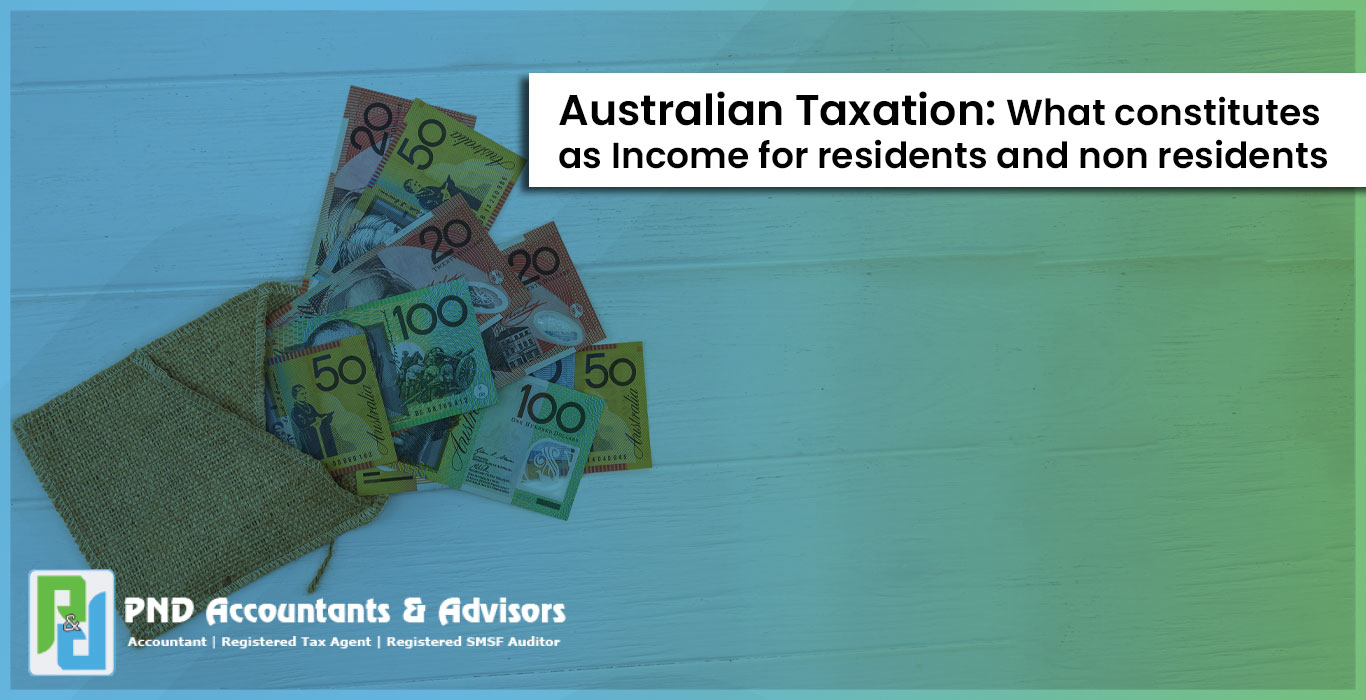An individual’s obligation to pay tax is assessed by their residential status in Australia for the Previous Year and the sources of income that he/she generates income from. The individual may be classified as a domestic or foreign resident for tax purposes or the determination of residency can be done using the common law or statutory test. The people that are deemed as Australian residents are subject to paying tax on their worldwide income and the tax for non-residents in Australia is imposed on income from Australian sources only.
Australian Resident

A resident individual is required to declare income earned from domestic as well as foreign sources. There are certain cases where the income earned may be partially exempt or permissible to be offset for a resident that has:-
- A temporary resident visa :- The overseas income tax is charged to income earned from work done overseas while the individual is on a temporary resident visa in Australia
- Received foreign income: – Tax on foreign income for Australian resident may be subject to double taxation in both Australia and the country where the individual receives it. The tax paid by an Australian resident in another country may qualify for a partial or full tax offset in Australia which avoids the event of double taxation.
- Received income from a country having a tax treaty with Australia: – The individual can request for a tax exemption in the respective country by providing a tax relief form.
Let us define the various heads under which income is categorized:-
a. Income from employment and personal services: – The term ‘personal services’ refers to the income generated through work done using personal skills or efforts. If a resident has worked or provided services to a firm located overseas, he/she is required to declare all the components of income as if it were earned domestically.
b. Income from assets and investments :- The resident individual has to disclose all the information if they own any assets or investments in foreign avenues such as :-
- Foreign bank accounts
- Dividend from stock
- Rental income from real estate properties
- Royalty from intellectual property
c. Capital gains on foreign assets: – Tax is liable to be paid on selling an overseas asset for an Australian resident even though the asset may have been purchased by the individual before becoming an Australian resident.
If the resident has disposed of any asset involving loss, destruction or sale of the asset then they are entitled to Capital Gains tax. The individual should maintain important documents of the asset for at least 5 years after the asset disposal. If the result is a net capital loss, the taxpayer can offset it against capital gains in a later year in the tax return
Foreign Resident
A foreign resident is mandated to disclose all the income that is associated with Australia in their Australia tax return. They are exempt from disclosing interest, royalties and dividends received from Australian firms given that the organization has already withheld tax on their behalf. The tax-free threshold is also not granted to them and hence, they are liable to pay tax on every dollar earned in Australia. However, payments for the following events are subject to foreign residents’ withholding tax:-
- Organizing casino gaming events
- Sports and entertainment activities
- Contracts for construction and related activities
The taxpayer can claim tax credit by reporting the payments in the Australian tax return against the tax assessed for him for the year.
PND Accountants provide you unmatched tax preparation services by understanding your needs and collaborating constantly by keeping you updated with the latest taxation implications for maximizing your tax benefits





